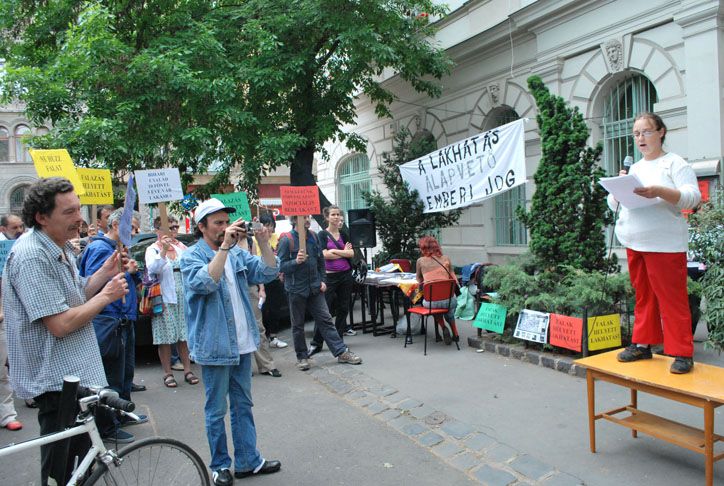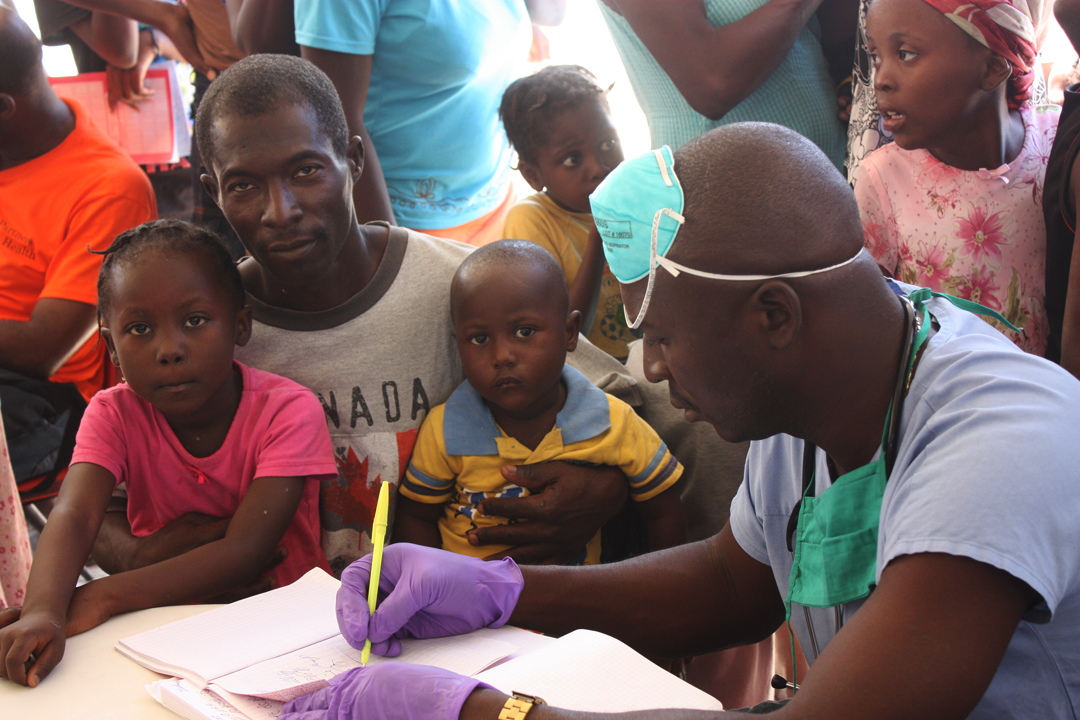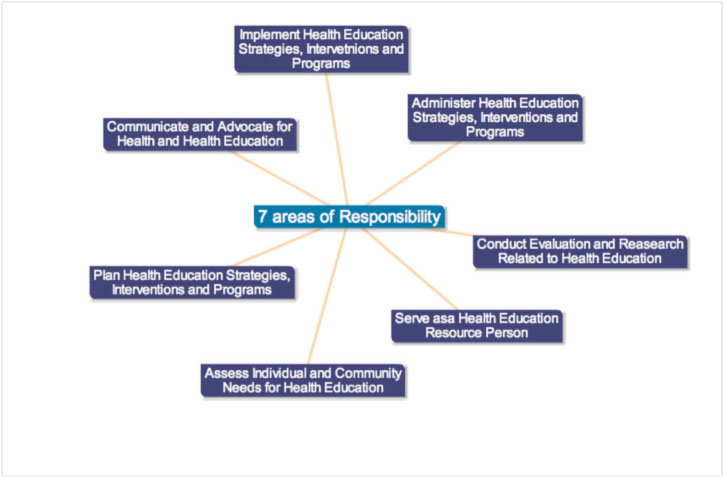|
Peer Education
Peer education is an approach to health promotion, in which community members are supported to promote health-enhancing change among their peers. Peer education is the teaching or sharing of health information, values and behavior in educating others who may share similar social backgrounds or life experiences. Rather than health professionals educating members of the public, the idea behind peer education is that ordinary lay people are in the best position to encourage healthy behaviour to each other. Areas of application Peer education has become very popular in the broad field of HIV prevention. It is a mainstay of HIV prevention in many developing countries, among groups including young people, sex workers, people whom practice unprotected sex, or people who use intravenous drugs. Peer education is also associated with efforts to prevent tobacco, alcohol and other drug use among young people. Peer educators can be effective role models for young adolescents by promoting healt ... [...More Info...] [...Related Items...] OR: [Wikipedia] [Google] [Baidu] |
Health Promotion
Health promotion is, as stated in the 1986 World Health Organization (WHO) Ottawa Charter for Health Promotion, the "process of enabling people to increase control over, and to improve their health." Scope The WHO's 1986 Ottawa Charter for Health Promotion and then the 2005 Bangkok Charter for Health Promotion in a Globalized World defines health promotion as "the process of enabling people to increase control over their health and its determinants, and thereby improve their health".Participants at the 1st Global Conference on Health Promotion in Ottawa, Canada, Geneva, Switzerland: World Health Organization, 1986. Accessed 2021 Sept 15. Health promotion involves public policy that addresses health determinants such as income, housing, food security, employment, and quality working conditions. More recent work has used the term Health in All Policies (HiAP) to refer to the actions that incorporate health into all public policies. Health promotion is aligned with health equity ... [...More Info...] [...Related Items...] OR: [Wikipedia] [Google] [Baidu] |
Grassroots
A grassroots movement is one that uses the people in a given district, region or community as the basis for a political or economic movement. Grassroots movements and organizations use collective action from the local level to effect change at the local, regional, national or international level. Grassroots movements are associated with bottom-up, rather than top-down decision making, and are sometimes considered more natural or spontaneous than more traditional power structures. Grassroots movements, using self-organization, encourage community members to contribute by taking responsibility and action for their community. Grassroots movements utilize a variety of strategies from fundraising and registering voters, to simply encouraging political conversation. Goals of specific movements vary and change, but the movements are consistent in their focus on increasing mass participation in politics. These political movements may begin as small and at the local level, but grassroots ... [...More Info...] [...Related Items...] OR: [Wikipedia] [Google] [Baidu] |
Health Promotion
Health promotion is, as stated in the 1986 World Health Organization (WHO) Ottawa Charter for Health Promotion, the "process of enabling people to increase control over, and to improve their health." Scope The WHO's 1986 Ottawa Charter for Health Promotion and then the 2005 Bangkok Charter for Health Promotion in a Globalized World defines health promotion as "the process of enabling people to increase control over their health and its determinants, and thereby improve their health".Participants at the 1st Global Conference on Health Promotion in Ottawa, Canada, Geneva, Switzerland: World Health Organization, 1986. Accessed 2021 Sept 15. Health promotion involves public policy that addresses health determinants such as income, housing, food security, employment, and quality working conditions. More recent work has used the term Health in All Policies (HiAP) to refer to the actions that incorporate health into all public policies. Health promotion is aligned with health equity ... [...More Info...] [...Related Items...] OR: [Wikipedia] [Google] [Baidu] |
Peer-mediated Instruction
Peer-mediated instruction (PMI) is an approach in special education where peers of the target students are trained to provide necessary tutoring in educational, behavioral, and/or social concerns.(Chan et al., 2009). In PMI, peers may mediate by modeling appropriate behavior themselves, using prompting procedures to elicit appropriate behavior from the target students, and reinforcing appropriate behavior when it occurs. The peer tutors are chosen from the target students' classrooms, trained to mediate and closely observed during mediation. Among the advantages noted to the technique, it takes advantage of the positive potential of peer pressure and may integrate target students more fully in their peer group. Conversely, it is time-consuming to implement and presents challenges in making sure that the peers follow proper techniques. However, studies have suggested it may be an effective technique for a wide range of students, including those with autism spectrum disorders. Proce ... [...More Info...] [...Related Items...] OR: [Wikipedia] [Google] [Baidu] |
Peer-led Team Learning
Peer-led team learning (PLTL) is a model of teaching undergraduate science, math, and engineering courses that introduces peer-led workshops as an integral part of a course.Gosser,D.K., Cracolice,M., Kampmeier, J.A., Roth,V., Strozak, V.S., Varma-Nelson,P. (2001) Peer-led Team Learning: A Guidebook. Upper Saddle River, NJ. Prentice Hall. Students who have done well in a course (for instance, General Chemistry) are recruited to become ''peer-leaders''. The peer-leaders meet with small groups of six to ten students each week, for one to two hours, to discuss, debate, and engage in problem solving related to the course material. History PLTL originated at the City College of New York in the early 1990s as part of an effort to address the low success rate of students in General Chemistry. Peer-led Workshops were incorporated into the teaching of General Chemistry by reducing the amount of lecture to three hours from four hours. Preliminary results at City College of New York and oth ... [...More Info...] [...Related Items...] OR: [Wikipedia] [Google] [Baidu] |
Peer Tutor
Peer mentoring is a form of mentorship that usually takes place between a person who has lived through a specific experience (peer mentor) and a person who is new to that experience (the peer mentee). An example would be an experienced student being a peer mentor to a new student, the peer mentee, in a particular subject, or in a new school. Peer mentors are also used for health and lifestyle changes. For example, clients, or patients, with support from peers, may have one-on-one sessions that meet regularly to help them recover or rehabilitate. Peer mentoring provides individuals who have had a specific life experience the chance to learn from those who have recovered, or rehabilitated, following such an experience. Peer mentors provide education, recreation and support opportunities to individuals. The peer mentor may challenge the mentee with new ideas, and encourage the mentee to move beyond the things that are most comfortable. Most peer mentors are picked for their sensibility, ... [...More Info...] [...Related Items...] OR: [Wikipedia] [Google] [Baidu] |
Peer Support
Peer support occurs when people provide knowledge, experience, emotional, social or practical help to each other. It commonly refers to an initiative consisting of trained supporters (although it can be provided by peers without training), and can take a number of forms such as peer mentoring, reflective listening (reflecting content and/or feelings), or counseling. Peer support is also used to refer to initiatives where colleagues, members of self-help organizations and others meet, in person or online, as equals to give each other connection and support on a reciprocal basis. Peer support is distinct from other forms of social support in that the source of support is a ''peer'', a person who is similar in fundamental ways to the recipient of the support; their relationship is one of equality. A peer is in a position to offer support by virtue of relevant experience: he or she has "been there, done that" and can relate to others who are now in a similar situation. Trained peer s ... [...More Info...] [...Related Items...] OR: [Wikipedia] [Google] [Baidu] |
Peer Mentoring
Peer mentoring is a form of mentorship that usually takes place between a person who has lived through a specific experience (peer mentor) and a person who is new to that experience (the peer mentee). An example would be an experienced student being a peer mentor to a new student, the peer mentee, in a particular subject, or in a new school. Peer mentors are also used for health and lifestyle changes. For example, clients, or patients, with support from peers, may have one-on-one sessions that meet regularly to help them recover or rehabilitate. Peer mentoring provides individuals who have had a specific life experience the chance to learn from those who have recovered, or rehabilitated, following such an experience. Peer mentors provide education, recreation and support opportunities to individuals. The peer mentor may challenge the mentee with new ideas, and encourage the mentee to move beyond the things that are most comfortable. Most peer mentors are picked for their sensibility, ... [...More Info...] [...Related Items...] OR: [Wikipedia] [Google] [Baidu] |
Peer Feedback
Peer feedback is a practice where feedback is given by one student to another. Peer feedback provides students opportunities to learn from each other. After students finish a writing assignment but before the assignment is handed in to the instructor for a grade, the students have to work together to check each other's work and give comments to the peer partner. Comments from peers are called as peer feedback. Peer feedback can be in the form of corrections, opinions, suggestions, or ideas to each other. Ideally, peer feedback is a two-way process in which one cooperates with the other. Definition Peer feedback involves providing opportunities for students to talk and listen, write, read meaningfully, and reflect on the content, ideas, issues, and concerns of an academic subject. Peer feedback can be defined as "a communication process through which learners enter into dialogues related to performance and standards." Peers should look for missing details, ask questions about p ... [...More Info...] [...Related Items...] OR: [Wikipedia] [Google] [Baidu] |
Partners In Health
Partners In Health (PIH) is an international nonprofit public health organization founded in 1987 by Paul Farmer, Ophelia Dahl, Thomas J. White, Todd McCormack, and Jim Yong Kim. Partners in Health provides healthcare in the poorest areas of developing countries. It builds hospitals and other medical facilities, hires and trains local staff, and delivers a range of healthcare, from in-home consultations to cancer treatments. It also removes barriers to maintaining good health, such as dirty water or a lack of food, and strengthens the rights of the poor. The approach trades charity for "accompaniment," which is described as a "dogged commitment to doing whatever it takes to give the poor a fair shake." While many of its principles are rooted in liberation theology, the organization is secular. It forms long-term partnerships with, and works on behalf of, local ministries of health.Farmer, Paul E., Bruce Nizeye, Sara Stulac, and Salmaan Keshavjee. 2006. "Structural Violence and Cl ... [...More Info...] [...Related Items...] OR: [Wikipedia] [Google] [Baidu] |
Health Education
Health education is a profession of educating people about health. Areas within this profession encompass environmental health, physical health, social health, emotional health, intellectual health, and spiritual health, as well as sexual and reproductive health education. Health education can be defined as the principle by which individuals and groups of people learn to behave in a manner conducive to the promotion, maintenance, or restoration of health. However, as there are multiple definitions of health, there are also multiple definitions of health education. In the U.S., the Joint Committee on Health Education and Promotion Terminology of 2001 defined Health Education as "any combination of planned learning experiences based on sound theories that provide individuals, groups, and communities the opportunity to acquire information and the skills needed to make quality health decisions." The World Health Organization (WHO) defined Health Education as consisting of "conscio ... [...More Info...] [...Related Items...] OR: [Wikipedia] [Google] [Baidu] |
Community Health Worker
A community health officer is a member of a community who is chosen by community members or organizations to provide basic health care, health and medical care within their community, and is capable of providing preventive, promotional and rehabilitation care to that community. Other terms for this type of health care provider include lay health worker, village health worker, community health aide, community health promoter, and health advisor. Community health officer contribute to community development and can help communities improve access to basic health services. They are most effective when they are properly trained to provide information and services to the community. Community health officer are the most promising form of delivering health services to resource-constrained areas. They are seen as secondary health services in most low-income countries are available as a service to the community. In many developing countries, especially in Sub-Saharan Africa, there are critica ... [...More Info...] [...Related Items...] OR: [Wikipedia] [Google] [Baidu] |


